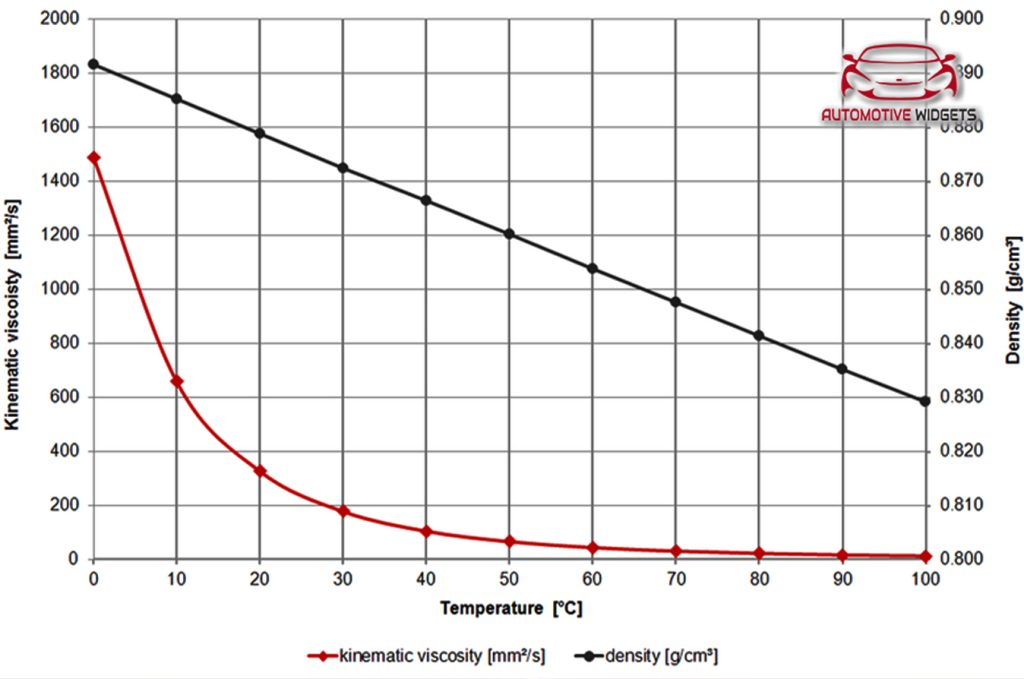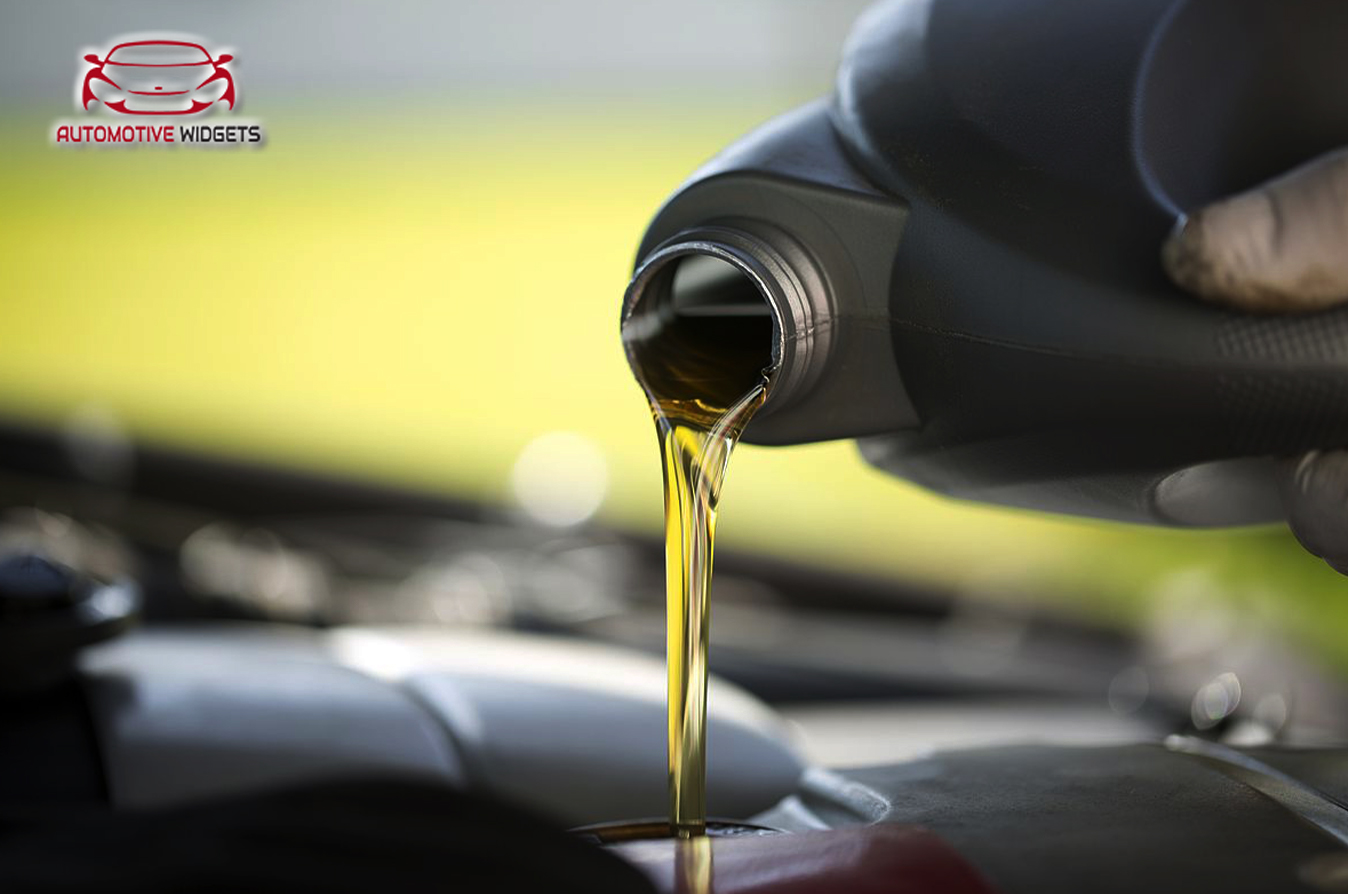Oil weight refers to the thickness of an oil, typically measured in terms of its viscosity. The higher an oil’s viscosity, the thicker it is and the heavier its weight. Heavier oils are generally used in high-performance applications where they can provide better protection against wear and tear.
Oil weight is the measure of how heavy or light an oil is. The lower the number, the lighter the oil; the higher the number, the heavier the oil. There are two types of oil weights: SAE (Society of Automotive Engineers) and ISO (International Organization for Standardization).
SAE oils are used in North America, while ISO oils are used in Europe and Asia. The most common oil weights are 0W, 5W, 10W, 15W, 20W, 25W and 30W. The “W” stands for winter.
These numbers refer to how well the oil flows at cold temperatures. The lower the number, the better it flows. 0W and 5W oils are usually used in cold weather climates because they flow easily at low temperatures.
10W and 15W oils are used in moderate climates because they have a balance of high and low-temperature performance. 20W and 25W oils are typically used in hot weather climates because they don’t flow as easily at high temperatures. 30Weight oils are generally reserved for racing applications because they have excellent high-temperature performance but poor low-temperature performance.
What is the Difference Between Light And Heavy Oils
Oil can be classified as either light or heavy, depending on its viscosity. The terms “light” and “heavy” are not scientific terms, but they are commonly used to describe oil. Light oil is less viscous than heavy oil, and it flows more easily.
Light oil also has a higher API gravity than heavy oil. The API gravity is a measure of how dense an oil is in relation to water. A higher API gravity means that the oil is less dense than water and will float on top of water.
Heavy oil is more viscous than light oil, and it flows more slowly. Heavy oil also has a lower API gravity than light oil. This means that the heavy oil is more dense than water and will sink to the bottom of a container of water.
If Its Api Gravity is Greater Than 10, It is Lighter And Floats on Water; If Less Than 10, It Sinks
API gravity is a measure of how heavy or light a petroleum liquid is in comparison to water. If a liquid’s API gravity is greater than 10, it is lighter and will float on water; if less than 10, it will sink. Petroleum liquids with an API gravity of less than 10 are denser than water and will therefore sink in it.
Light Crude Oil Has an API Gravity of 32 Or Higher; Extra-Light Oil 36°–42°; Light Oil 42°–46°; Medium Oil 28°–34°; Heavy Oil 22°–28°
The American Petroleum Institute gravity, or API gravity, is a measure of how heavy or light petroleum liquids are in comparison to water. If something has an API gravity of 42, that means it is 42 degrees heavier than water. Crude oil grades are classified according to their density, which is measured by the American Petroleum Institute (API).
The higher the API number, the lighter and more valuable the oil because it produces more gasoline and other high-value products when refined.
Will Thinner Oils Damage Your Engine?

Weight of Engine Oil
It’s no secret that oil is vital to an engine’s performance. But did you know that the weight of your engine oil can have a significant impact on how well your engine runs?
The thickness, or viscosity, of motor oil is key to its ability to lubricate and protect your engine.
If the viscosity is too low, the oil won’t be able to properly coat all of the moving parts in your engine and could lead to premature wear. If the viscosity is too high, on the other hand, it can cause excessive drag on the internals of your engine and lead to reduced fuel economy.
So what’s the ideal viscosity for your motor oil?
That depends largely on the climate you live in. For example, if you live in an area with extremely cold winters, you’ll want an oil with a higher viscosity so it doesn’t thicken up and lose its ability to flow when temperatures dip below freezing. On the other hand, if you live in a hot climate, you’ll want an oil with a lower viscosity so it doesn’t get too thick and sluggish when temperatures rise above 100 degrees Fahrenheit.
Generally speaking, most modern engines are designed to run on oils with a 5W-30 or 5W-40 viscosity rating. However, it’s always best to check your owner’s manual to see what weight of oil is recommended for your particular vehicle. And if you’re ever unsure about which type of oil to use, don’t hesitate to ask your trusted mechanic for advice.
What is 30 Weight Oil Used for
30-weight oil is usually used in lawnmowers and other small engines. It is also used in some older cars.
Oil Weight for Winter
As temperatures drop, it’s important to make sure your car is running on the right type of oil. Thickness, or viscosity, is an important property of motor oil, as it affects an engine’s ability to lubricate moving parts. In general, thicker oils are better for cold weather because they maintain their viscosity better than thinner oils.
For most cars, the ideal oil thickness for winter is between 5W and 20W. The “W” in this case stands for winter – meaning that the oil is designed to perform well in cold temperatures. Oils with a lower number (5W, 10W, etc.) will flow more easily at low temperatures than oils with a higher number (20W, 30W, etc.).
However, if you live in an area with very cold winters, you may want to consider using an even thinner oil (0W or 5W). If you’re not sure what type of oil to use in your car this winter, consult your owner’s manual or speak to a qualified mechanic.
What Weight Oil Should I Use
The debate of what weight oil to use in our engines has been around since the dawn of the automobile. Some say that using lightweight oil is better for fuel economy while others claim that heavier-weight oil provides more protection for our engines. So, what’s the real story?
To understand this issue, we need to first look at how motor oil works. Motor oil lubricates and cleans the engine by trapping dirt and debris in its filter. The oil also prevents corrosion and wear on engine parts by creating a thin layer between them.
As the engine runs, the oil breaks down and becomes less effective at doing its job. That’s why it’s important to change your motor oil regularly. Now that we know how motor oils work, let’s take a look at the different weights or grades of motor oils.
The most common weights are 5W-30, 10W-30, and 20W-50. These numbers refer to the viscosity of the oil, or how easily it flows. The lower the number, the thinner the oil, and vice versa.
So a 5W-30 motor oil is thinner than a 10W-30 motor oil which is thinner than a 20W-50 motor oil. In general, lighter-weight oils are better for fuel economy because they flow more easily and don’t create as much friction in the engine. However, they may not provide as much protection as thicker oils since they can break down more quickly under high temperatures and heavy loads.
Heavier weight oils can withstand higher temperatures and provide more protection but may decrease fuel economy due to increased friction. It’s important to note that modern engines are designed to run on lighter-weight oils so using a heavier-weight oil may actually do more harm than good.
Ultimately, it’s best to consult your vehicle’s owner manual to see what grade/weight of motor oil is recommended for your specific vehicle model.
Conclusion
Oil weight is the measure of how heavy or dense an oil is. It is usually expressed in terms of API gravity, which is a scale that ranges from 0 to 70, where water has a value of 10 and lighter oils have higher values. Heavier oils have lower values.
Oil weight is important because it affects many aspects of the oil industry, including transportation costs, refining processes, and the end products that are produced. A light oil will cost less to transport than a heavy oil, for example. A heavier oil may need to be processed differently than a lighter oil in order to produce the same end products.




Leave a Reply